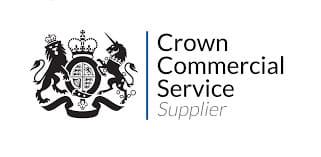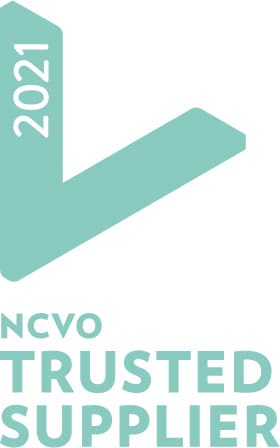Employee Engagement and Gender Pay Reporting: A discussion with Emma Jones
Currently in the UK, just 14% of companies report paying women more than their male employees, and there is no sector in which the pay gap favours women.
Not the same as unequal pay, which has been illegal in the UK since 1970, the gender pay gap is the difference in the average hourly wage of all men and women across a workforce. In companies where women do more of the less paid work than the men, the gender pay gap tends to be larger.
Is the gender pay gap an opportunity for all employees to talk about pay, and a segue into a broader discussion around employee engagement?
As Global Head of Leadership Hiring at HCL**, one of the fastest growing technology companies in the world, Emma Jones is responsible for devising the driving forward of highly focused, in-house, Executive-level search campaigns. Passionate about Diversity & Inclusion, influencing the right behavioural skills, having the right work-life balance and empowering people, Emma possesses not only a great deal of experience, but also empathy and curiosity around the topics of gender pay reporting and employee engagement.
Russam GMS Associate Director of Board Solutions, Cathy Kay, and marketing manager Harriet May, met with Emma in King’s Cross, London, to ask her about these topics. This interview has been lightly edited and condensed for clarity.
Cathy Kay (CK): How important is culture and gender pay gap reporting? How can you start building a culture where you have an openness about pay? Do you think that’s something that you are by default building with people as they come on board?
Emma Jones (EJ): I think it’s difficult when you’re talking about global organisations. Operating across continents allows businesses to exercise a level of choice in the information they choose to report or not. For example, if local law requires reporting such as in the UK then reports are produced, however, where there is no legal requirement some global organisation choose to be truly transparent and others not so much and this is where the challenges really begin. In my role, I do not see any evidence of a gender pay gap and I am responsible for senior hires globally, however, at this level, what is more obvious is the lack of women in the senior roles to accurately measure if a gap really exists.
CK: I’ve been to events where they add it up, the cost of having a gender pay gap to an individual woman, over the lifetime of work, and it starts to take the conversation to a whole different level. What does that really mean? We’re talking about two people doing the same job and we’re talking about one gets paid more than the other, just because of their gender. We’re talking about a situation where one gender may receive benefits in kind. I’ve worked in companies where the men have all gone to Vegas on a boxing jolly, and the women are back doing the work. There’s massive value to that, if you look at the cost of that trip and add it to that person’s pay. So where do you start?
EJ: How do you start addressing it?
CK: Yes.
EJ: For me, like with the challenge of diversity and inclusion, there is no simple solution. It is complex but fundamentally we must start by acknowledging there is a problem that does require attention and a solution. We engage our most senior leaders and obtain their enduring commitment to bring about a culture of transparency and fairness. We do the math, we compare and contrast the costs of the male and female employee including these hidden extras. Importantly, where there is evidence that there is no pay gap then we should champion it, we should be showcasing these businesses as industry leaders in this area. However, where the gap is evident then my default would be to develop an effective communication strategy, use technology solutions and provide non-bias training. I would also always have my eye on the leadership team and assessing whether their ambition is really to address this gender pay gap or happy just to be perceived as doing so.
Crucial to this is my solemn belief that unless we work with men, we will be unable to shape attitudes. We need their buy-in; measuring differences on a scale is one thing, moving the needle on that scale without weight behind it is quite the other.
CK: So it’s about education really.
EJ: That’s the start point definitely.
Harriet May (HM): But what are the causes? Is it as simple as, it’s a man and a woman and the man is worth more. Or is it things like maternity leave and women not negotiating their salaries as hard?
EJ: From a business point of view it is expensive for women to go off, take a year out, and depending on when they return they have potentially new challenges and understandably new priorities.
CK: When you see an organisation like Accenture who offer the same rights to men in terms of paternity leave– are we starting to see that culture shift, of guys having the confidence to take more time for their families?
EJ: I don’t have evidence of that in my organisation, which could suggest a few possibilities. It’s on offer but what is the take-up, it’s on offer but maybe outside of my remit, it’s on offer but maybe the millennials, because they operate and think differently, will be the groundbreakers in its effective implementation.
CK: They can see the impact on their partner.
EJ: Absolutely. So, if you think about the future and how it’s going to look, the millennials are naturally going to bring in a cultural shift, or a shift in thinking and with the appropriate interventions dealing with preconceived ideas and bias, addressing these inequalities might become more realistic.
CK: So being an international company, you’ve got very different rules from country to country. Some of that is governed by what the board says in terms of employment law, but some of it is governed by the CEO and the way people do business. But as people travel more, you know, if they speak more freely about what they’re on… historically there’s been a fear of talking about pay openly in case it upsets somebody, but should it work from the bottom up in terms of telling everyone what we earn?
EJ: Well they do that in some countries. In… I think it’s Switzerland… they publish leaders’ salaries so it has to be a lot more transparent.
CK: So, in your organisation, are all the Swiss leaders’ salaries published?
EJ: I don’t know exactly. But if it is Swiss Law then my organisation would be reporting it.
CK: So if you’re a Swiss national working in a Swiss country office, they would. But if they were an Indian national working in India they wouldn’t?
EJ: Good question but I really don’t know the answer. Do I think it helps people by being more transparent? Yes, I do. I really don’t think anybody feels psychologically safe when there is a lack of it because nobody knows what’s going on, this then breeds distrust.
CK: Do companies see that as a positive way to look after employees, to keep people on their toes and not get comfortable? Is that seen perhaps as a management style in itself?
EJ: I think it’s more of a cultural thing and in some it seems more unconscious rather than conscious– it’s more like a historical modus operandi and unless business leaders commit to bringing about effective change the status quo will remain as it has for years gone by.
CK: And that’s the learnings you have as you go up through the management structure.
EJ: You could say that. It is how you essentially become institutionalized unless you are gifted with the power of independent thought and blessed with the courage to challenge these discriminatory practices. Fortunately, I have both!
CK: A self-fulfilling prophecy.
EJ: Again yes if one seeks what is perceived the easy life. To champion against this, I feel you’ve got to have serious policies in place to stand a fighting chance. You’ve got to have policies that people can adhere to. HR are crucial to this.
HM: How long have you been at HCL?
EJ: Four and a half years. So quite a long time.
HM: Have you noticed… is it harder for young women not being able to see women in leadership positions?
EJ: I think HCL have some fantastic initiatives that they drive out of India, but we don’t necessarily see in the rest of the world.
HM: Are they going to roll them out?
EJ: That’s the plan, but it’s like any of these things, you have to do it in a number of different ways. You can’t just give the numbers to senior management to hire against, because if you don’t make the environment right internally people don’t stay with you. There are a lot of issues around retention and consequently we have implemented a much-rivalled onboarding plan which is proving hugely successful.
CK: So, if you ask at the end of an interview in the UK, have you got any questions, and you say, do you have transparency around pay and gender– should we all be asking that as women?
EJ: Absolutely. I think it’s up to us to drive this forward. I think it would be a very uncomfortable question to ask as at that stage because you wouldn’t know the outcome of the interview itself.
CK: Would you think some interviewers would view that as a trouble-making question? A disruptor?
EJ: Possibly yes, but then you have to beg the question whether you want to be going into a company that can’t or won’t answer these difficult questions. Not everyone thinks that way when they’re trying to get on the ladder and go up the ladder, they want to fit in and do well. I think these women in leadership programmes, or programmes for women in general– mentoring– are absolutely key. Absolutely vital.
CK: We’re a little too polite to ask sometimes, aren’t we. For more money, or for parity with someone who we think might be earning more money than us.
EJ: And we often think we can’t do a job. In my experience, and I have recruited thousands of people over the years, if women feel they can’t do 40% of the job, they won’t generally put themselves forward, whereas men will put themselves forward to anything even if they can’t do it. Women often take a step back, especially when they return from maternity leave. I remember vividly how nerve-wracking it was returning to work. I’ve known a number of women who struggle with that, you somehow feel like you’ve lost some of your marbles.
CK: Do you really or do you just have too much on your plate?
EJ: I think you have too much on your plate.
HM: That thing where women take on more of the household tasks than men, and all that, but also the world is moving on so quickly so a year out today isn’t the same as a year out twenty years ago, is that not true?
CK: When we had our kids we only got eight weeks’ maternity leave.
HM: I come from America where there is no maternity leave, legally.
EJ: Ten days’ holiday and you’re back at work.
CK: I remember leaving my babies and they were like newborns!
EJ: Six weeks and I was back at work!
CK: It was normal! I remember being really bullied by my boss who didn’t like it that I’d had a baby. He purposefully took me to a really chi chi restaurant with a Michelin star, over the Conran store in South Ken, and I was breastfeeding, so I was full of pads and everything else, felt awful, and he sat there and asked me to give him my view on CVs that he handed me over the dinner, of men who he thought could do my job.
EJ: Wow. Wow. I mean, I think it’s moved on slightly from that. I got sacked because I was pregnant.
CK: I don’t actually think he thought what he was doing was wrong.
HM: My last boss, when she got that job the guy interviewing her asked her why she didn’t have children.
EJ: And that’s part of the bias that you’re dealing with. It’s a mindset so you have to think, how do you change mindsets? If you look back to the suffragettes, and I ask you to name a suffragette, who would you name?
CK: Pankhurst.
EJ: Right. So, did you know, that… obviously the women went to jail, they were killed, and they fought because they absolutely believed in something… but did you know that a lot of suffragettes were actually men? They were the ones who drove it through parliament because there weren’t any women in parliament. So, the message is there loud and clear, engage our male leaders to really start moving the needle. We need allies and there are a lot of good ones out there that when given the facts, the figures, the benefits, the awareness, they want to be the modern-day suffragette.
CK: I said to my daughters, if you went to an interview and the other person they were considering was a man, and they picked you because you cost less, I don’t think they believed me. They said, why would that happen? They’re of such a different mindset, where they assume that of course they’d be offered the same.
EJ: Absolutely.
CK: Whereas in our day we might have been so naive, that part of the problem was that we might have gone, oh that’s good, I’ll get the job because I cost less. You see what I mean! I think I was that stupid. Because I hadn’t been given the confidence to believe I was equal.
EJ: Or if you go and make a ruckus what happens? You get passed by.
HM: Or you get labeled a “difficult woman”.
EJ: A difficult woman, defensive, you’re aggressive, all the things you don’t necessarily want to be labeled as. But if you look at senior women in business, commonly they take on male traits because the perception, if not the reality is, that’s what you have to be in the workforce to get on and up.
CK: I think what we need personally is a culture change in organisations that is based on honesty that will impact on every aspect of that organisation, whether it be reputation, how you deal with major crises, diversity, and boardroom decisions because people will be open enough to question the CEO because they’re confident. So really, I believe there’s an education for the chair of organization to push the ethical behaviour of an organisation, of which diversity and gender are part of. Otherwise it’s all of the things you mentioned before, it’s a culture of secrecy, suspicion, therefore insecurity, and ultimately, it’s starting to get a bit smelly, isn’t it? With the complexity of a company like HCL, nothing’s going to make a short-term impact.
EJ: You are quite correct but there is commitment from the team in India to address this and there are, as I mentioned, very positive signs that the organisation is committed to change, albeit not at all levels and not necessarily in a timescale that I would condone as acceptable. You have to start somewhere though and that precisely is where we are.
CK: And our positions as recruiters and hiring managers, we have to take a risk sometimes.
EJ: We have to take a risk and that risk should be measured against the impact we are in a position to make. We need to pick our battles strategically so that we win the war on inequality. As recruiters, the position that Russam GMS are in, you’re raising awareness, you’re bringing people together, you’re engaging companies to at least review it. But realistically, what can you physically do on the ground? This comes full circle back to having the strategy in place that encompasses a communication plan, a non-bias plan, working productively and equally with your male employees around evolving not their management but leadership skills for the 21st century workplace of which an openness around vulnerability is essential. And to your point on honesty, it will be great to have an honest and transparent culture but…
CK: The more social networks and communication, things get found out much more easily don’t they.
EJ: Well they do, and everybody talks anyway. I don’t understand why companies persist with this Ostrich Syndrome behaviour, adamant in their belief that nobody knows what’s going on, because as soon as something happens everybody knows, Instagram, Twitter, Facebook, it’s all out there and people are talking.
** In July 2018, Emma Jones left HCL Technologies and is now Managing Partner – Executive Team and Leadership Coach at Disruptive Coaching Limited.
Log in or register to post comments

Contact us
Call us on 0207 099 2222 or email HQ@russam.co.uk








